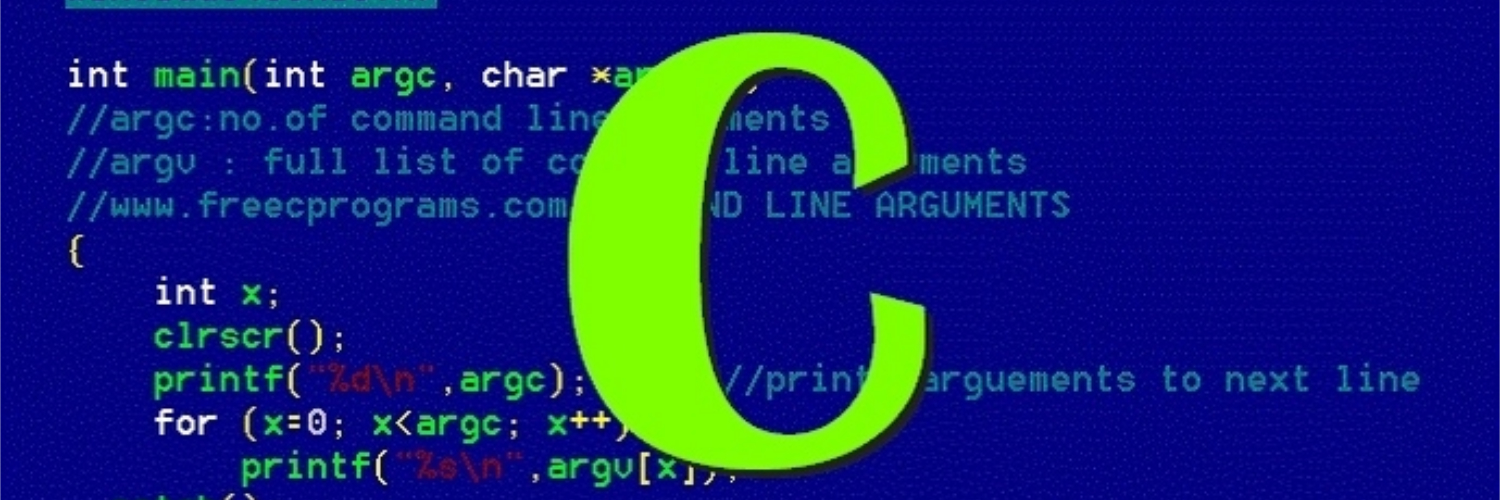Generic Programming in C
How to do generic programming in C

Generic programming is an important idea in programming. In languages like Java and C++, it can be done easily. In this post, I show how to do it in plain old C.
We use the classic stack implementation. First, we implement an int version.
This is stack.h:
typedef struct {
int *elems;
int logLength;
int allocLengh;
} stack;
void StackNew(stack *s);
void StackDispose(stack *s);
void StackPush(stack *s, int value);
int StackPop(stack *s);This is stack.c:
#include "stack.h"
#include <stdio.h>
#include <stdlib.h>
void StackNew(stack *s) {
s->logLength = 0;
s->allocLengh = 4;
s->elems = (int *)malloc(sizeof(int) * 4);
}
void StackDispose(stack *s) { free(s->elems); }
void StackPush(stack *s, int value) {
if (s->logLength == s->allocLengh) {
s->allocLengh *= 2;
s->elems = (int *)realloc(s->elems, s->allocLengh * sizeof(int));
}
s->elems[s->logLength] = value;
s->logLength++;
}
int StackPop(stack *s) {
s->logLength--;
return s->elems[s->logLength];
}Now we make it generic.
Here is stack_gen.h:
typedef struct {
void *elems;
int elemSize;
int logLength;
int allocLength;
void (*freefn)(void *);
} stack;
void StackNew(stack *s, int elemSize, void(*freefn)(void *));
void StackDispose(stack *s);
void StackPush(stack *s, void *elemAddr);
void StackPop(stack *s, void *elemAddr);Here is stack-gen.c:
#include "stack_gen.h"
#include <assert.h>
#include <stdlib.h>
#include <string.h>
static void StackGrow(stack *s) {
s->allocLength *= 2;
s->elems = realloc(s->elems, s->allocLength * s->elemSize);
}
void StackNew(stack *s, int elemSize, void (*freefn)(void *)) {
s->elemSize = elemSize;
s->logLength = 0;
s->allocLength = 4;
s->elems = malloc(4 * elemSize);
s->freefn = freefn;
assert(s->elems != NULL);
}
void StackDispose(stack *s) {
if (s->freefn != NULL) {
for (int i = 0; i < s->logLength; ++i) {
s->freefn((char *)s->elems + i * s->elemSize);
}
}
free(s->elems);
}
void StackPush(stack *s, void *elemAddr) {
if (s->logLength == s->allocLength) {
StackGrow(s);
}
void *target = (char *)s->elems + s->logLength * s->elemSize;
memcpy(target, elemAddr, s->elemSize);
s->logLength++;
}
void StackPop(stack *s, void *elemAddr) {
s->logLength--;
void *source = (char *)s->elems + s->logLength * s->elemSize;
memcpy(elemAddr, source, s->elemSize);
}This is the code from the course Programming Paradigms (lecture 5 - 7) by Stanford. This post serves as a bookmark for me and I’m not gonna explain it better than the professor. So if you don’t understand, just watch the video, it is good material for learning C.

Twitter
Google+
Facebook
Reddit
LinkedIn
StumbleUpon
Email